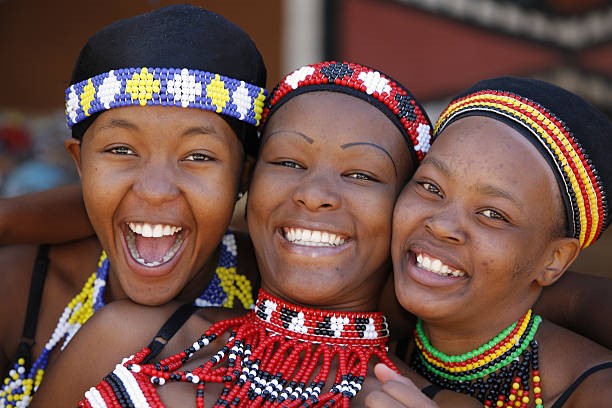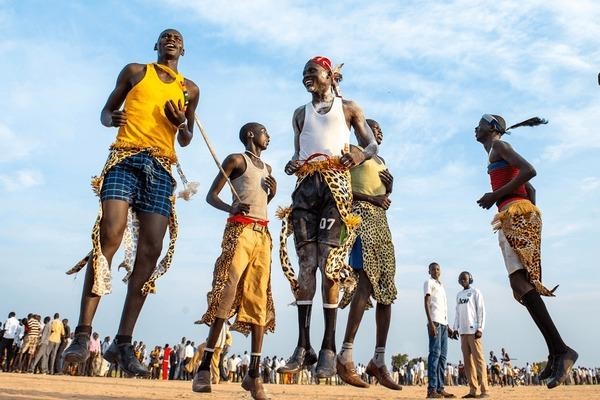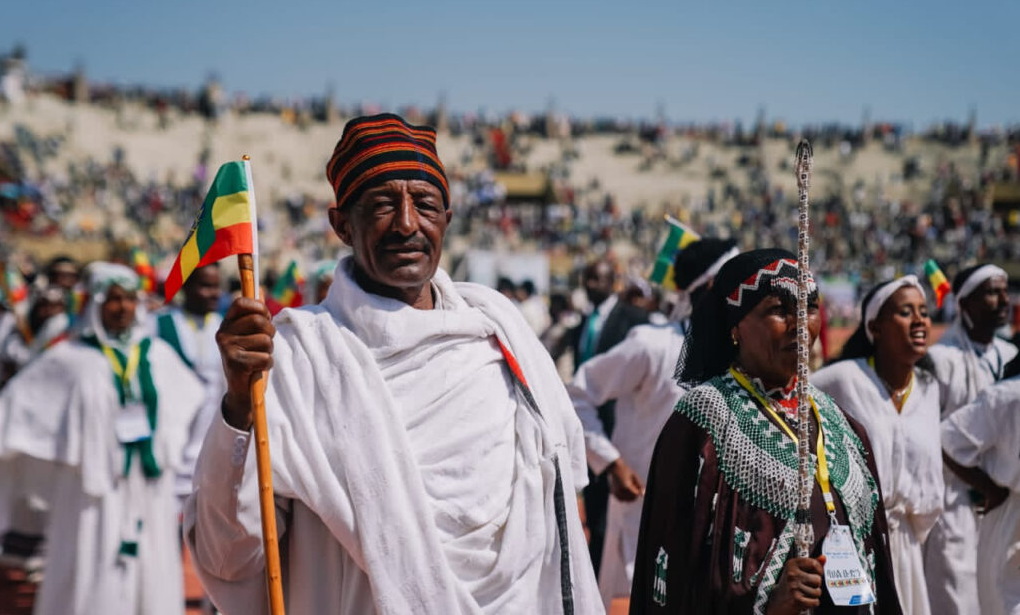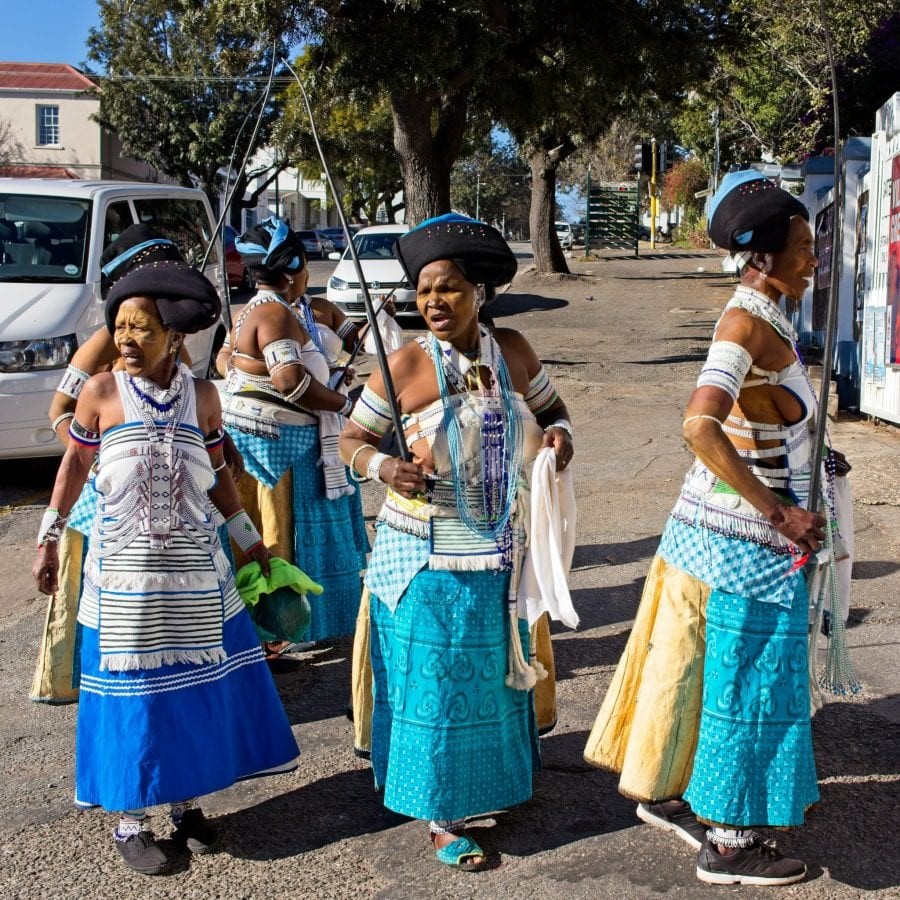Swahili, also commonly referred to as Kiswahili in its native context, is renowned as one of Africa’s most significant and widely spoken languages. The language is rooted in the coastal regions of East Africa that have developed as a result of interactions between Bantu-speaking communities and traders from Arabia, Persia, and India. Swahili’s structure is rooted in Bantu grammar, but its lexicon reveals a significant influence from Arabic, as well as traces of Portuguese, German, and English. These traces serve as legacies of historical interactions with foreign powers. Over centuries, these interactions have played an active role in enriching Swahili with linguistic and cultural elements, making it a key symbol of Africa’s dynamic history of trade, migration, and cultural fusion.
Today, Swahili serves as a vital lingua franca that is spoken by an estimated 100 million people across East and Central Africa. It is an official language in countries such as Kenya, Tanzania, and Uganda, and holds a significant position as a working language of the African Union. Its influence extends far beyond these borders, connecting diverse communities in various countries across the globe, including Mozambique, Zambia, Malawi, and Southern Arabian countries, such as Yemen and Oman, as well as other parts of the world.
History and Origin of the Swahili Language
The history of the Swahili language can be traced back to the cultural and economic exchanges along the East African coast, stretching back over a millennium. The Swahili language evolved significantly during the first millennium CE due to extensive trade along the Indian Ocean. Merchants from Arabia, Persia, India, and later China frequented the East African coast and established trading hubs in cities like Lamu, Mombasa, and Zanzibar. These interactions brought not only goods such as spices, textiles, and gold but also languages and cultural practices that played a role in the origin of Swahili.
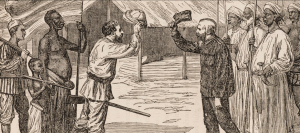
One of the most profound impacts on Swahili came from Arabic, which was introduced by traders and settlers. Arabic words and phrases were incorporated into Swahili, especially in areas related to religion, governance, and trade. There are numerous Arabic loanwords in the language, including the word Swahili, from Arabic sawāḥilī (a plural adjectival form of an Arabic word meaning “of the coast”). Also, common Swahili words such as kitabu (book), hakuna (there is none), and salaam (peace) were made as a result of this interaction. Swahili would gain popularity as a lingua franca used by several closely related Bantu-speaking tribal groups.
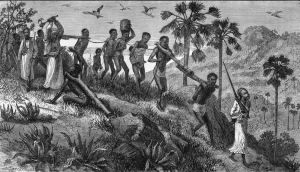
Swahili was later used as the language of the Arab ivory and slave caravans, which played a major role in promoting its spread to regions as far north as Uganda and as far west as Congo. During the colonial era, the role of Swahili expanded further. German and British colonizers in East Africa recognized its importance as a lingua franca and used it for administrative and educational purposes. For instance, Germans used Swahili extensively as the language of administration in Tanganyika. This, in turn, laid the foundation for its adoption as a national language of independent Tanzania.
Today, Swahili serves as both a unifying language in East Africa and an essential medium for expressing African identity and heritage.
How Swahili Shapes African Culture and Identity
Swahili plays a key role in shaping African culture and identity as it serves as a unifying factor among different communities across East and Central Africa.
1. A symbol of unity
Swahili plays a major role in bridging ethnic and linguistic divides, particularly in multicultural nations such as Kenya and Tanzania. The language promotes mutual understanding and collaboration among people from different backgrounds by serving as a common language different communities can use to interact.
2. Preserving and sharing oral traditions
As a language that has been used in storytelling for centuries, Swahili has played a vital role in preserving Africa’s rich oral traditions. Through hadithi (stories), methali (proverbs), and ngoma (traditional songs and dances), Swahili speakers pass down wisdom, values, and history from one generation to the next.
3. Cultural identity and Pan-Africanism
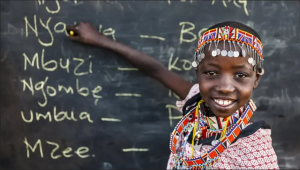
Swahili is considered a linguistic symbol of unity and empowerment for the continent. For instance, its adoption as one of the working languages of the African Union justifies its significance as a tool for promoting regional solidarity and a collective African identity. The language’s inclusivity and accessibility also make it a powerful medium for advocating African pride on the global stage.
4. A language of religion and diplomacy
Swahili’s historical connection to Islam has made it a significant language in religious teachings and practices along the Swahili Coast. In addition, as a language used in trade and diplomacy, Swahili has facilitated cultural exchanges and economic relationships within Africa and beyond.
Swahili in Pop Culture and Media
Swahili’s rich vocabulary and melodic rhythm have made it a compelling presence in global pop culture and media. Here are some of the ways Swahili has transcended its regional roots to become a symbol of African pride and identity in the global cultural landscape.
1. Swahili in Music

Swahili plays a major role in African music, especially in genres such as Bongo Flava and Taarab. For instance, Bongo Flava is a music genre originating in Tanzania that combines Swahili lyrics with contemporary hip-hop, R&B, and reggae influences, creating a genre that resonates with both African and international audiences. Popular artists like Diamond Platnumz and Ali Kiba have gained global recognition as a result of their catchy, Swahili-infused songs that highlight the language’s versatility. Taarab, on the other hand, blends Swahili poetic traditions with Arabic and Indian musical influences.
2. Swahili in Film and Television
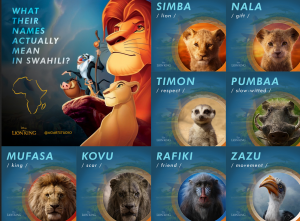
Swahili has so far been included in a series of international films and television, playing a major role in boosting its global recognition. For instance, Disney’s ‘The Lion King’ famously popularised the phrase “Hakuna Matata,” which means “no worries.” In addition, having character names like Simba (lion) and Rafiki (friend) reflected the language’s integration into storytelling.
3. Swahili in Digital Media and Social Platforms
The digital age has also played a significant role in cementing Swahili’s presence in pop culture. Streaming platforms such as YouTube and Spotify have become avenues for Swahili music and podcasts, whereas social media platforms are brimming with Swahili hashtags, memes, and content.
Swahili extends beyond being a means of communication; it is a cultural bridge that unites diverse communities across Africa and beyond. As the language gains prominence in education, governance, and global media, its significance continues to grow. By continuing to serve as a vital tool for promoting African heritage, fostering regional cooperation, and amplifying African voices on the global stage, Swahili has proven to not only be a language of the past but also one of the future.
References
Lingua Fonica, (2022). Swahili language origin: What is the origin of the Swahili language? https://linguafonica.com/blog/swahili-language-origin-what-is-the-origin-of-the-swahili-language/
Mugane, J. M. (2022). The story of how Swahili became Africa’s most spoken language. The Conversation. https://theconversation.com/the-story-of-how-swahili-became-africas-most-spoken-language-177259
The University of Kansas (n.d.) Introduction to the Kiswahili Language. https://kiswahili.ku.edu/introduction-kiswahili-language

